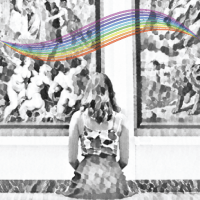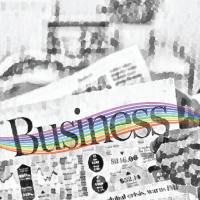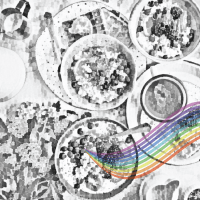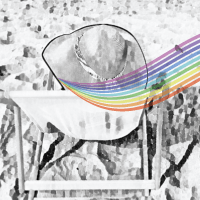- Atilla Tiriyaki
- Average Reading Time: 4 minutes
- Community, Same-Gender Loving
- articles, atillat
A common cause and adversity will often bring very different people together. In 2020, the global LGBTQIA+ community is one of the most diverse minority groups globally, with representation from all countries, ethnicities, genders and faiths. The community is comprised of many smaller communities, from the well-known and established groups like the lesbian, gay, bisexual and transgender communities to many smaller lesser-known groups. Representation is important, and today, fortunately, more people now have the freedom to discover and accept their identities. Many quickly realise that they do not entirely identify with non-traditional identities, resulting in the risk of splintering representation groups. Not all voices will be heard with such a large group of diverse people. A reality that often results in problems where the wants and needs of members will differ among the very different groups and factions. However, today, 25% of the world’s LGBTQIA+ community still live in countries where their sexuality is deemed illegal. Where gender expression is not permitted and the unity of the community so crucial for the global fight for equality, is there a risk of representative groups and associations separating?
Over the past few years, there have been consistent rumours within the LGTBQIA+ community that many smaller and lesser-known groups often feel underrepresented. The feeling that many of the well-respected representative groups and associations advocating for and speaking on their behalf do not always highlight or address the issues directly affecting them.
The under-representation is rumoured to have started conversations around creating targeted organisations that concentrate on their specific wants and needs, breaking away from more established representative bodies. Though just rumours, many of the LGBTQIA+ representative groups and associations have come out and publicly denied any potential splintering. However, there is a small amount of truth that many feel marginalised and their needs ignored within the community.
Outside of the community, people often joke about the ever-growing number of letters that form the name of the wider community. Those same people often do not appreciate the need we all have to be represented and the feeling that our voice is being heard. Whether non-binary or lesbian, we all want acknowledgement and acceptance. Most importantly, we all want our fundamental human rights and protection under the law. Over the years, pioneers and advocates as a collective have fought hard to improve the lives and conditions of community members.
Though LGBTQIA+ is now more widely accepted in certain parts of society and within specific countries worldwide, many are still being actively persecuted even today. Whether the continual persecution by antiquated regimes or, in recent years, the rise in anti-LGBTQIA+ sentiment across the world. With the constant threat to hard-fought rights and ongoing persecution, it is undeniable that the community still has a long way to go. The global LGBTQIA+ community has clear goals in mind, for everyone to have the freedom to be their true self and be accepted, not persecuted worldwide.
Looking closely at the estimates relating to the community, you can see where the minority groups exist. It is estimated that of the world’s population, 1.34% identify as Lesbian & Gay, 1.29% identify as Bisexual, and less than 1% (0.006%) identify as Transgender. The larger groups tend to focus more on sexuality-related rights and laws. Women that identify as lesbian or bisexual will also often fight for gender equality. However, though sexuality is important within many smaller groups, gender expression and anti-discrimination laws are higher on their list of priorities.
It is undeniable that work needs to be carried out to ensure everyone feels represented and that their voices are heard. However, splintering off at this crucial time with so many still persecuted and the constant risk of progressive laws being reversed could cause long-term issues. A move that could also potentially dilute both the overall message, the calls for equal treatment and the collective influence the community has overall.
There are examples of very different people uniting together, working towards one common goal throughout history. One such example is the Indian Independence Movement, whereby various Indian communities living under the rule of the former British Empire worked together. With their own cultures, religions, beliefs, and languages, these very different individuals worked together to achieve independence. Though the groups fractioned off after independence in 1947 to create modern-day India, Pakistan and Bangladesh, for over 90 years, they worked together in unity with one common goal in mind.
The world, as a whole, is still a long way from treating LGBTQIA+ individuals as equal. The community needs are relatively simple to achieve. To give all people their fundamental rights, the freedom to be their true selves, loving whomever they want without fear of persecution. In attaining these collective needs, no one is asked to change their fundamental beliefs or even dilute or lose their heterosexual rights to legal recognition and protection.
Many countries over the years have stepped up and legalised same-sex relationships, introduced anti-discrimination laws, improved equality and gender expression for LGBTQIA+ individuals; however, there is still so much more to do. With 25% of the community living in fear of persecution and anti-LGBTQIA+ sentiment growing, there is a risk that the laws and rights many fought hard to achieve could be reversed.
From establishing mandates, we all collectively agree to fairer representation amongst all groups, including the smaller, lesser-known ones. For community members themselves to have more empathy and understanding for those different to them, especially when finding common ground. All with the common goal and ambition to ensure everyone, whether they live around the world, has the freedom to be their authentic self without fear.
Like the pioneers that came before us, the advocates fighting for us now, you do not have to be on the front lines. Still, it is crucial that you believe in the cause and that your wants and needs are fairly represented. The clear message to the world is that we are not asking to be treated differently. Only that we are given the same rights and protections under the law like everyone else; that cannot be too much to ask, can it?
THE LGBTQIA+ COMMUNITY
More from Gayther
Discover all of the exciting and entertaining articles written by people from the worldwide LGBTQIA+ community, sharing their stories, opinions and experiences in their own style and from their unique perspectives










